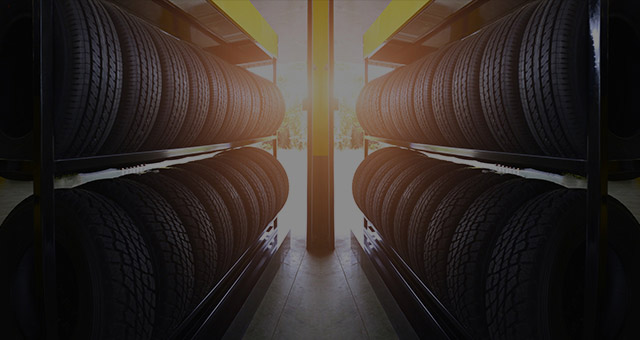Find the most effective Tires Morris IL: Considerable Choice Available
Tire Service: Understanding Tire Pressure Tracking Systems
Comprehending Tire Stress Monitoring Equipments (TPMS) is an important element of preserving ideal lorry performance and security when driving. With advancements in automobile innovation, TPMS has come to be a typical feature in modern-day vehicles, offering real-time details on tire stress levels. Digging much deeper into the details of TPMS, one can uncover the numerous parts that compose this system and the value of each in ensuring exact tracking. From direct to indirect TPMS systems, the landscape of tire stress surveillance is diverse, each with its unique set of benefits and factors to consider. Stay tuned to unwind the complexities of TPMS, from maintenance pointers to the undeniable advantages of maintaining your tires appropriately blew up. morris tire and alignment.

Value of TPMS
The significance of Tire Stress Monitoring Solutions (TPMS) hinges on their capacity to boost car safety and security and efficiency with real-time monitoring of tire pressure levels. Preserving the appropriate tire pressure is essential for making certain optimum handling, stopping, and total safety of an automobile. TPMS offers drivers with instant responses on any type of overinflated or underinflated tires, permitting for timely adjustments to be made.
Parts of TPMS
Sensors are normally located in the tire shutoff stem or affixed to the wheel setting up, where they measure tire pressure and send data to the control module. Some advanced TPMS versions also display the real tire stress analyses for each tire, offering drivers with real-time information to guarantee optimum tire efficiency and security. By keeping track of tire pressure continually, TPMS aids protect against mishaps, decreases tire wear, and boosts fuel effectiveness, making it a crucial part for lorry safety and security and performance. morris tire and alignment.
Kinds Of TPMS

On the other hand, indirect TPMS relies upon the car's wheel speed sensing units to monitor tire pressure. This system identifies underinflation by contrasting the rotational rates of the wheels. Indirect TPMS is less expensive than direct TPMS, as it uses existing sensing units within the car.
While straight TPMS uses more precise analyses, indirect TPMS is simpler in style and generally needs less upkeep. Both systems have their benefits and constraints, and the selection in between them frequently relies on variables such as expense, car make, and personal choice. Recognizing the differences between these 2 kinds of TPMS can aid car owners make educated decisions relating to tire upkeep and safety and security.
TPMS Maintenance Tips
Conduct routine checks on the tire stress levels and compare them with the TPMS analyses to guarantee they are constant. Throughout tire rotation or substitute, make read this post here certain that the TPMS elements are managed very carefully to prevent any kind of prospective damage. If the TPMS advising light illuminates on the dashboard, deal with the issue without delay by checking the tire stress and the overall system for any kind of faults.
Benefits of Proper Tire Stress
Maintaining correct tire stress, as emphasized in TPMS Upkeep Tips, is vital for enjoying the various advantages related to optimum tire stress levels. Among the main benefits of keeping the proper tire stress is enhanced fuel performance. When tires are correctly blown up, there is much less moving resistance, resulting in much better gas economy. Furthermore, correct tire pressure makes sure also tire wear, prolonging the lifespan of the tires and promoting safer driving problems. With the best tire pressure, vehicles likewise have far better handling and traction, specifically in unfavorable weather. This can boost general driving efficiency and safety for the driver and guests. Additionally, keeping optimum tire pressure can contribute to a smoother and extra comfy experience by lowering vibrations and sound triggered by underinflated tires. In verdict, the advantages of appropriate tire pressure exceed just tire long life; they include enhanced gas effectiveness, boosted safety, much better lorry performance, and general driving comfort.
Conclusion
In conclusion, understanding tire pressure tracking systems (TPMS) is crucial for keeping optimum tire pressure and making sure car security. By identifying the importance of TPMS, being acquainted with its parts, knowing the various kinds offered, sticking to appropriate maintenance ideas, and recognizing the advantages of preserving appropriate tire stress, motorists can improve their driving experience and prolong the life-span of their tires. Appropriate tire pressure is vital to safe and reliable vehicle operation.
